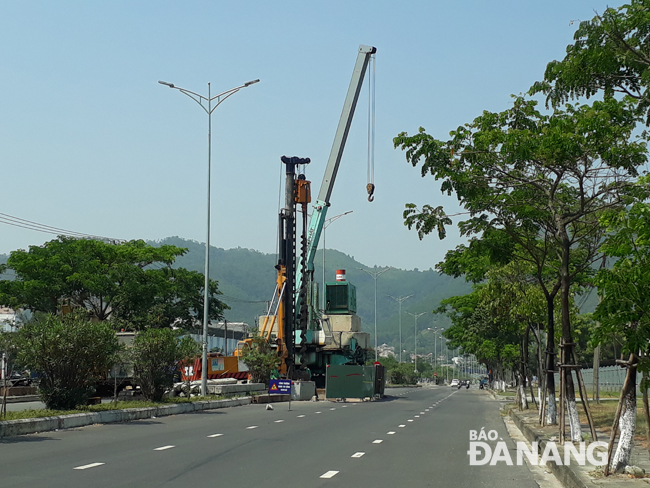Hoa Khanh on track to become eco-industrial park
A seminar recently took place in Da Nang to discuss the feasibility studies and the implementation of industrial symbiosis in the city-based Hoa Khanh Industrial Park (IP).
 |
| The upgrade of transport infrastructure, drainage and waste water treatment is now underway at the Hoa Khanh IP in order to facilitate it to turn into an EIP |
The event was within the framework of the ongoing project ‘Eco-industrial Park Initiative for Sustainable Industrial Zones in Viet Nam’ jointly deployed by the Vietnamese Ministry of Planning and Investment and the United Nations Industrial Development Organisation (UNIDO).
Under the project, 4 IPs nationwide, namely Khanh Phu in the northern province of Ninh Binh, Da Nang-located Hoa Khanh, and the Tra Noc No 1 and No2 in the Mekong Delta city of Can Tho, are being converted into eco-industrial parks (EIPs) on a trial basis.
Accordingly, focus is on encouraging businesses to cooperate with each other and with the community to reduce environmental impacts and production costs. In addition, clean and low-carbon technologies and practices are demonstrated within the industries to minimise GHG emissions, the release of persistent organic pollutants (POPs), and land based water pollution.
According to the municipal Authority of the Da Nang High-Tech Park and Industrial Parks, during the 3 years of implementing the transition steps, the Hoa Khanh IP has met most of the basic criteria of EIPs. In the coming time, importance will be attached to giving more active support to businesses operating here through technical assistance, hereby helping them enhance their competitiveness and profitability.
Over recent years, the Ministry of Planning and Investment has organised a series of workshops to update the results of the project, thereby identifying measures to cope with any environmental incidents in the IPs in a prompt and effective manner.
The Ha Noi-based Centre for Environment and Community Development (CECoD) has given preference documents on this issue to businesses operating in the 4 IPs.
In a similar vein, the Viet Nam Cleaner Production Centre (VNCPC) has proposed solutions which helped a total of 25 businesses reduce the consumption of raw materials, water and energy, and minimise GHG emissions, release of persistent organic pollutants (POPs) and the use of toxic chemicals.